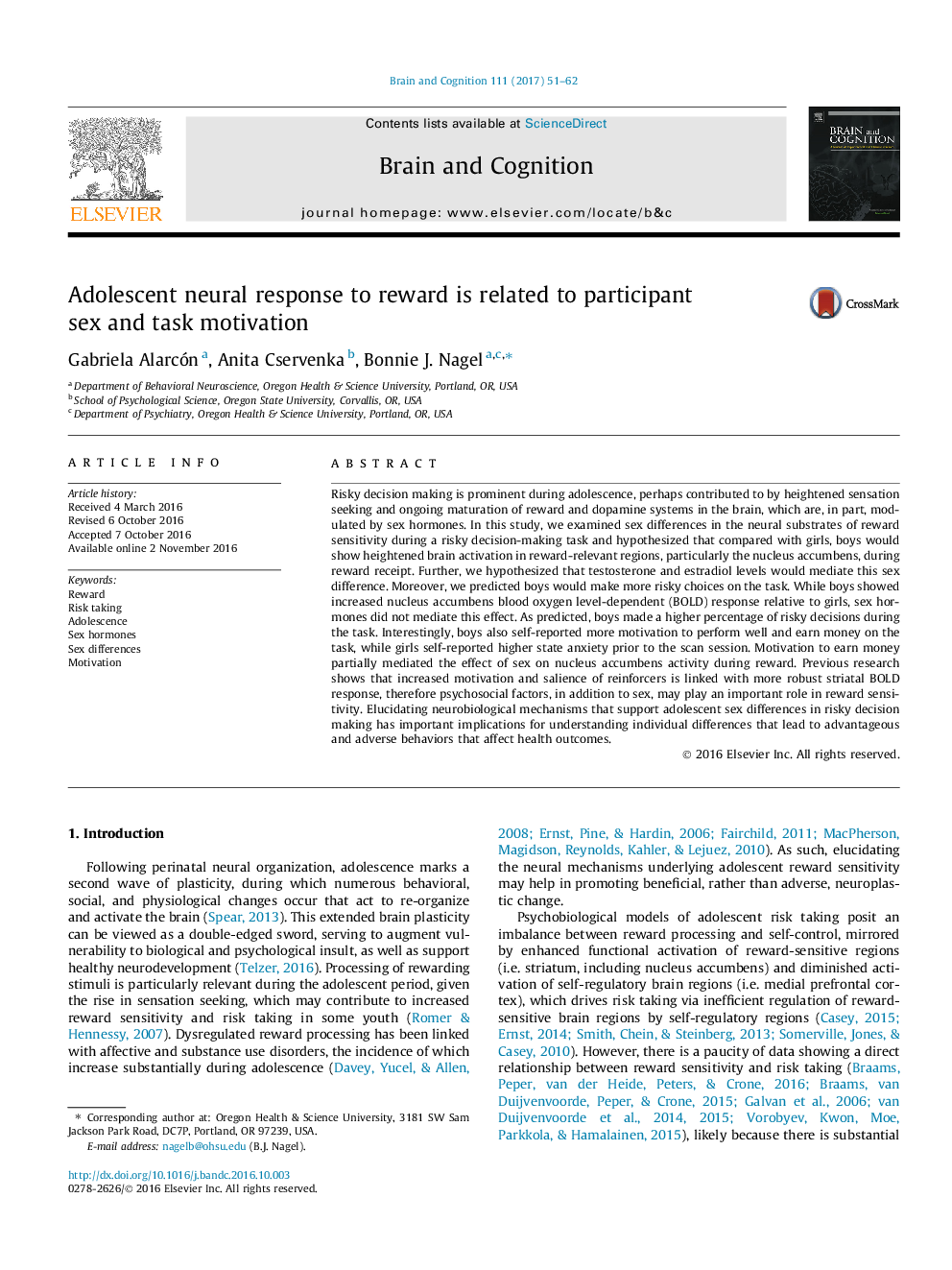| کد مقاله | کد نشریه | سال انتشار | مقاله انگلیسی | نسخه تمام متن |
|---|---|---|---|---|
| 5041185 | 1473960 | 2017 | 12 صفحه PDF | دانلود رایگان |
- Boys show more robust activation of nucleus accumbens during reward processing.
- Task motivation partially mediates sex differences in nucleus accumbens activity.
- Boys make a higher percentage of risky selections on a risky decision-making task.
- Boys report higher motivation to earn money; girls report higher state anxiety.
Risky decision making is prominent during adolescence, perhaps contributed to by heightened sensation seeking and ongoing maturation of reward and dopamine systems in the brain, which are, in part, modulated by sex hormones. In this study, we examined sex differences in the neural substrates of reward sensitivity during a risky decision-making task and hypothesized that compared with girls, boys would show heightened brain activation in reward-relevant regions, particularly the nucleus accumbens, during reward receipt. Further, we hypothesized that testosterone and estradiol levels would mediate this sex difference. Moreover, we predicted boys would make more risky choices on the task. While boys showed increased nucleus accumbens blood oxygen level-dependent (BOLD) response relative to girls, sex hormones did not mediate this effect. As predicted, boys made a higher percentage of risky decisions during the task. Interestingly, boys also self-reported more motivation to perform well and earn money on the task, while girls self-reported higher state anxiety prior to the scan session. Motivation to earn money partially mediated the effect of sex on nucleus accumbens activity during reward. Previous research shows that increased motivation and salience of reinforcers is linked with more robust striatal BOLD response, therefore psychosocial factors, in addition to sex, may play an important role in reward sensitivity. Elucidating neurobiological mechanisms that support adolescent sex differences in risky decision making has important implications for understanding individual differences that lead to advantageous and adverse behaviors that affect health outcomes.
Journal: Brain and Cognition - Volume 111, February 2017, Pages 51-62
